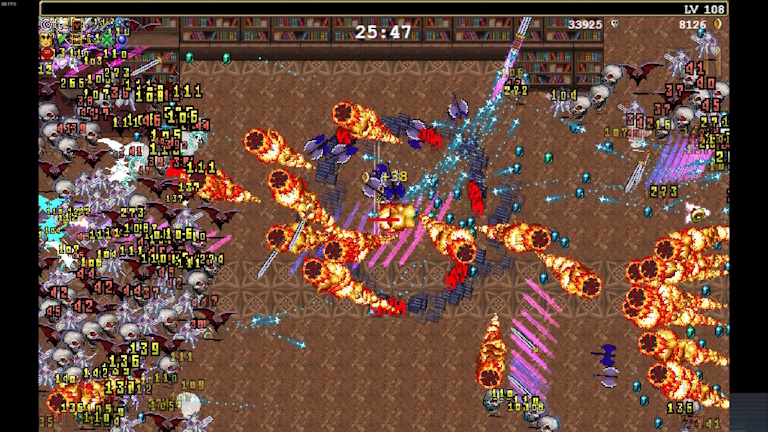
The idea of what a game is supposed to has changed over the decades. Games used to be single screens where players blasted alien pixels. As the technology grew, so did the definition of 'game.' In some games, we pointed and clicked on objects to progress. In others, we fit blocks together or managed a city. Some games were about fun. Others challenged our morals and sensibilities. Soon, there were so many kinds of games that we argued amongst ourselves. “That's not a game,” we would say, “that's a movie.” Or, “that's not a game, that's a 50-hour lecture.”
All we can do is define what we, personally, want from games. The idea of the power fantasy remains consistent with me. I like a game where I can become someone stronger than my real-world self. My character doesn't have to be pure, or even heroic. But I want to rise above the odds. I want to wreck monsters. And dammit, if I'm gonna die, then let me die in glory.

Vampire Survivors is built around the simplest concepts. You are a lone pixel sprite on a map. You have a weapon that fires automatically after a cooldown timer runs out. Your only input options are moving around or accessing menus. Monsters of varying kinds pursue you. They drop gems that earn you experience points. Every level up gives you an RNG-based choice of weapons or upgrades.
You have thirty minutes to survive.
The monsters begin the run as nonthreatening little trash mobs. This can trick first-time players into thinking that running away helps them win. However, as the onscreen stopwatch ticks up, the monsters get stronger. Their packs increase in number. By minute ten, they flank the player. By minute twenty, they appear in swarms. The only way to last after the twelve-minute mark is to kill, and level up, on a consistent basis.
Meanwhile, upgrading requires careful management. Do you grab multiple weapons, or do you focus on leveling up what you already own? Do you focus on maxing out health and defense items, or do you go for pure offense? Strength, knockbacks, or DPS?
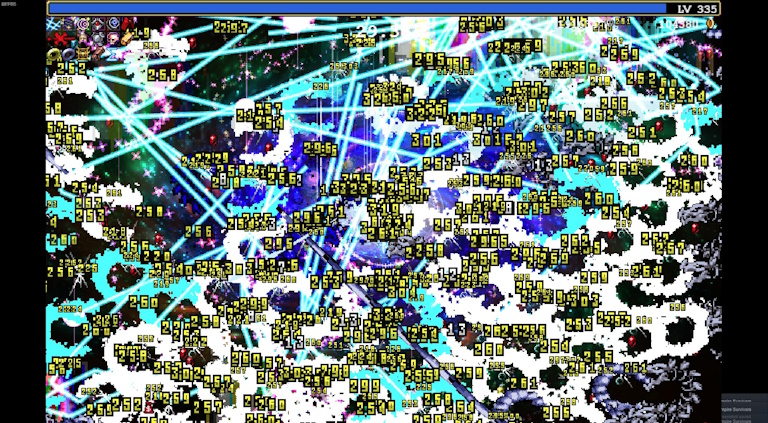
By making the correct decisions, your character can become godlike. He or she rips through the battlefield, destroying everything the game throws. The official blurb describes this as “[becoming] the bullet hell,” which is a perfect way of putting it.
A successful run is a dopamine overload. Failure is expected at first because of the learning curve, and the first stage alone already serves a brutal sandwich. This is why your first victory radiates radiates such sweet euphoria.
Of course, once the stopwatch hits minute thirty, the Grim Reaper kills the character. In a way, this is Vampire Survivors speaking of the inevitability of death—that no matter how many monsters we conquer, the reaper finds us in the end. But this presents the player with a new goal: surviving past minute thirty, destroying the Reaper, and overcoming Death. With the right combination of weapons and items, it can be achieved. I did it several times, and it's a real badge of honor.
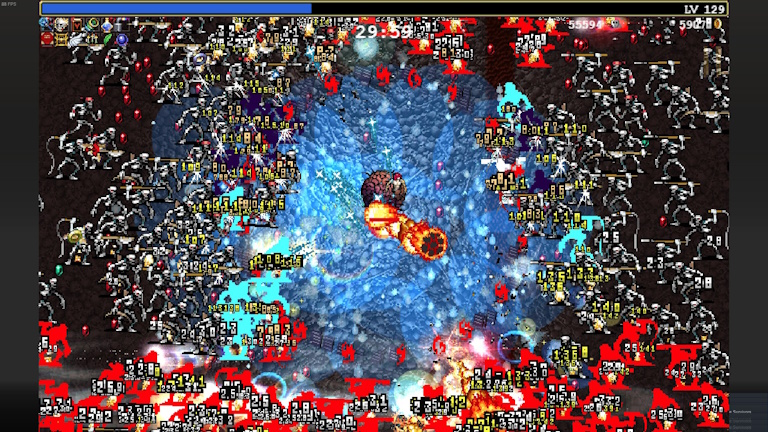
“30 minutes a time” sounds like a sweet deal. That's such a small part of the player's day there is still time to fix the dryer, wash the car, and visit the bank. But “thirty minutes at a time” can blow up into dozens of hours. When I played, I failed runs halfway through and thought, well, I still have time to make that up.
Oh, but then the unlockables started. Every time I tried putting the game down to do grownup responsibility things, it pulled me back in. First came the unlocked characters, stages, and bonus rounds. I loved testing out the new characters against the monster gauntlets.
Plus, losing is an investment in future wins. Any in-game gold earned during the run, regardless of death or survival, is added to a total balance. It can be spent on a plethora of upgrades, ranging from strength, extra lives, or even increased challenge. This provides an incentive to keep trying.
Just as that wore off for me, the game introduced the Randomazzo (which I still can't pronounce), a system of tarot cards that add beneficial modifiers. Eventually, after many more hours, I had all the cards in my arsenal.
And I still wasn't done! “Did you defeat the Katamari Damacy abomination in the Bone Zone?” the game asked. “Did you defeat the hidden boss at the bottom of Gallo Tower?”
And at this point, you might be saying, “y'know, Vampire Survivors sounds an awful lot like a freemium game.” Therin lies the beauty and wonder of it. Yes, Vampire Survivors employs all the tactics a freemium game uses to rope players into a needy addiction.
But Vampire Survivors is not a freemium game. It costs $5 to buy, exactly one time. There are no loot boxes or digital store items. Gold and gems are in-game only, with no option to trade real world money for them. Every unlockable is earned through gameplay.
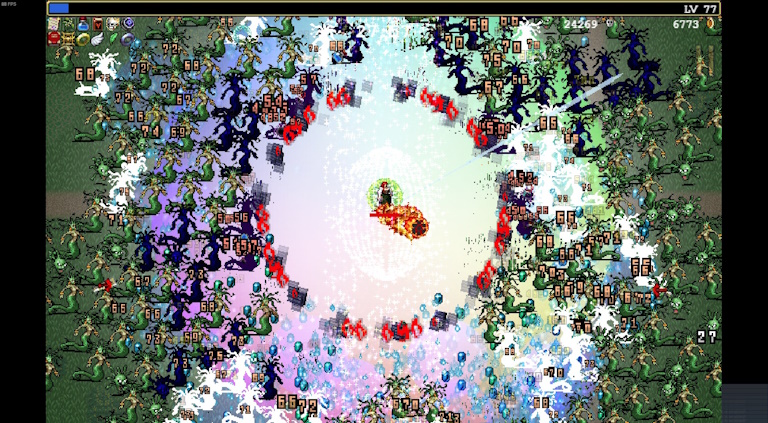
In other words, Vampire Survivors is a freemium game's exact opposite. If it were a freemium game, I'd be broke now.
Beyond that, Vampire Survivors serves as proof that some of these big name companies lie to you. A great game does not need to cost $70, nor should you be obligated to pay more for every trinket and character skin. But to put an end to a belated point: no, Vampire Survivors is not a freemium game. It's just a damned good indie game. Feel fortunate you don't live in a timeline where Luca Galante, the game's developer, ruined the economy.
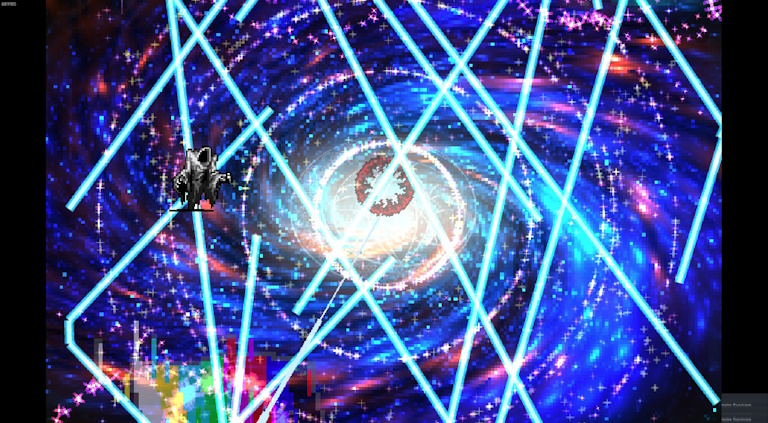
Final Grade: A